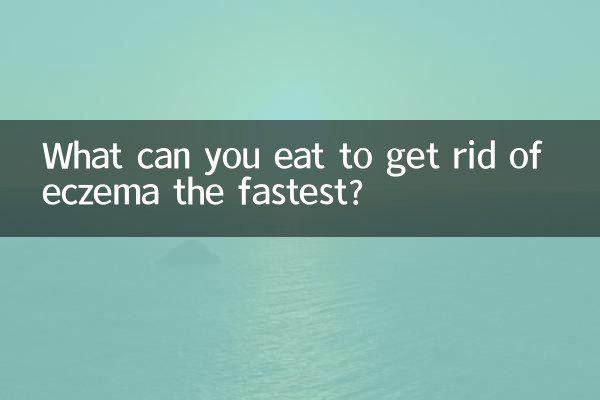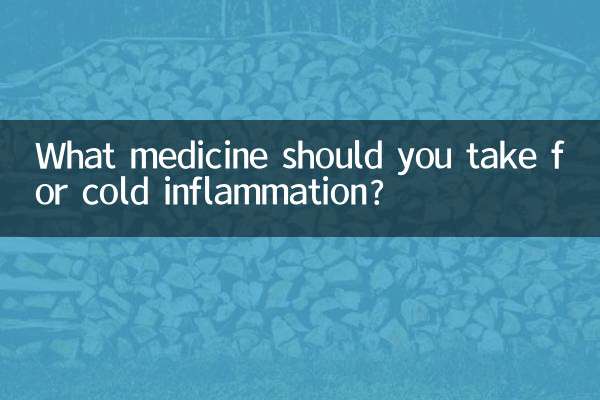What can you eat to get rid of eczema the fastest?
Eczema is a common skin inflammation characterized by redness, itching, dryness and even flaking. In addition to drug treatment, dietary conditioning is also an important way to relieve eczema symptoms. This article will combine the hot topics and hot content on the Internet in the past 10 days to recommend the most effective dietary therapy plan for you, and attach structured data for reference.
1. The relationship between eczema and diet

The onset of eczema is closely related to the immune system and allergic reactions, and certain ingredients in food may directly or indirectly affect the inflammatory response. By adjusting your diet, you can reduce symptoms and promote skin repair.
| food category | Mechanism of action | Recommended food |
|---|---|---|
| anti-inflammatory foods | Rich in Omega-3 fatty acids and antioxidants, reducing skin inflammation | Deep-sea fish (salmon, sardines), flax seeds, walnuts |
| probiotic foods | Regulate intestinal flora and enhance immunity | Yogurt, kimchi, miso |
| vitamin rich foods | Promote skin repair and enhance barrier function | Carrots, spinach, pumpkin |
| hypoallergenic food | Reduce allergen intake to avoid worsening of symptoms | Brown rice, green leafy vegetables, pears |
2. Recommended foods to get rid of eczema the fastest
Based on recent hot health topics and medical research, the following foods are widely considered to be effective in relieving eczema symptoms:
| food name | key ingredients | Food recommendations | Effective time |
|---|---|---|---|
| salmon | Omega-3 fatty acids | 2-3 times a week, steamed or grilled | 1-2 weeks |
| flaxseed | alpha-linolenic acid | 1 scoop daily, add to yogurt or salad | 2-3 weeks |
| spinach | Vitamins A, C, E | 100g per day, cold or stir-fried | 1 week |
| sugar free yogurt | Probiotics | 200ml per day, choose products without additives | 1-2 weeks |
3. Foods that eczema patients should avoid
Certain foods may induce or aggravate eczema symptoms, so please pay special attention to:
| food category | Potential hazards | common food |
|---|---|---|
| High histamine foods | May cause allergic reactions | Seafood, fermented foods, alcohol |
| dairy products | Some people are lactose intolerant | Milk, cheese (try alternatives) |
| High sugar foods | Promote inflammatory response | Desserts, sugary drinks |
| processed food | Contains additives and preservatives | Sausage, canned food, instant food |
4. Comprehensive dietary therapy plan
Based on recent discussions in the health field, the following 7-day dietary regimen is recommended:
| time | breakfast | Lunch | dinner |
|---|---|---|---|
| Day 1 | Sugar-free yogurt + flax seeds + blueberries | Steamed salmon + brown rice + boiled spinach | Pumpkin porridge + cold cucumber |
| Day 2 | Oatmeal + walnut kernels | Chicken breast salad (dressed with olive oil) | Steamed sweet potato + cabbage tofu soup |
| Day 3 | Brown rice porridge + steamed carrots | Grilled Mackerel + Quinoa Rice | Sautéed Mushrooms with Broccoli |
5. Things to note
1. Food allergies vary from person to person. It is recommended to conduct an allergy test first or gradually try new foods.
2. Diet therapy needs to be combined with drug treatment and skin care for better results.
3. Maintain adequate hydration, at least 8 glasses of water per day
4. If symptoms persist or worsen, seek medical treatment promptly
Through scientific and reasonable dietary adjustments, most patients with eczema can observe significant improvement within 2-4 weeks. Remember, sticking to a healthy diet will not only help relieve eczema, but also improve your overall health.

check the details

check the details